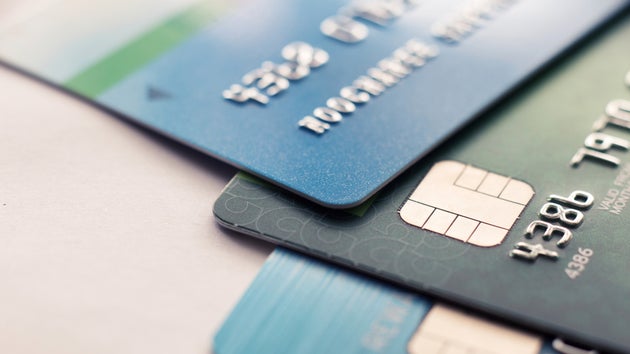Table of Contents
Payment gateway in Germany, Austria, and Switzerland
In Germany, there are various payment gateways that merchants can use to handle their payment processes. We want to give you an insight into the world of payment gateways and explain what exactly lies behind the term.
What is a Payment gateway and what is its function?
A payment gateway is a software platform that processes financial transactions technically. It is often also called a payment processor or payment provider. It is provided by so-called E-commerce Application Service Providers (ASP).
A payment gateway facilitates transactions by transferring transaction information between the payment portal (e.g., a website) and the front-end processor or acquirer bank. It handles the processing and authorization of card payments or alternative payment methods for e-business companies, online retailers, or businesses that sell both online and offline.
How does the process work?
The process begins with a customer's online order. If the order is placed via a website, the customer's web browser encrypts the information to be sent between the browser and the merchant's web server.
There are several encryption methods, one of which is SSL (Secure Socket Layer). The payment gateway allows transaction data to be sent directly from the customer's browser to the gateway, bypassing the merchant's systems. This reduces the merchant’s PCI-DSS compliance obligations without redirecting the customer from the website. The merchant's transaction details are then forwarded to their payment gateway through another SSL-encrypted connection. The message is then converted by the payment gateway from XML to ISO 8583 or another message format, and the transaction information is forwarded to the payment processor of the merchant’s acquirer bank. The payment processor forwards the transaction information to the credit card networks (e.g., Visa, MasterCard, or American Express). Typically, the credit card company then forwards the transaction to the appropriate card-issuing bank (issuer).
The issuing bank receives an authorization request, checks the available credit or debit, and sends a response with a code (through the same process as the authorization request) to the processor. The response code also describes the reason why the transaction might have failed. Meanwhile, the card issuer holds an authorization that is assigned to the merchant and the consumer for the approved amount. The processor now forwards the authorization response to the payment gateway.
After the payment gateway receives the response, it forwards it to the website, where it is then relayed to the merchant and the cardholder. This is called authorization ("Auth").
The entire process up to this point usually takes 2-3 seconds.
The merchant then fulfills the order, and the above process can be repeated. This time, however, to clear the authorization by executing the transaction. Usually, clearing is initiated only when the merchant has completed the transaction. This causes the issuing bank to clear the authorization and then settle the transaction with the merchant’s acquirer bank.
The merchant submits all approved authorizations in a batch to their acquirer bank for settlement via their processor. The acquirer bank then makes the batch settlement request to the credit card issuer. The credit card issuer pays a settlement payment to the acquirer bank. The acquirer bank then deposits the requested amount into the account specified by the merchant.
The entire process from authorization to settlement to funding usually takes about 3 days.
What additional measures do payment gateways offer?
Most payment gateways offer various additional tools to better cover different industries and payment types.
Fraud prevention measures
Fraud prevention measures are essential for every merchant. Unfortunately, fraud has become a part of online commerce, especially credit card fraud. Therefore, many payment gateways offer fraud prevention measures such as AVS (Address Verification System) or CSC (Card Security Code).
Address verification system
The Address Verification System is a system that checks the identity of credit card holders. The address on the credit card is compared with the billing address provided.
Recurring payments
Subscriptions are an integral part of e-commerce. Payment gateways often offer recurring payments, which are based on a regular schedule.
Payment history
The entire payment history is stored and can be used for future references.
Security of a payment gateway
Security is an integral part of all payment gateways. Sensitive data such as credit card numbers must always be protected from fraudulent parties. Credit card companies have established a set of rules and security standards that anyone accessing card information, including gateways, must follow. These rules and security standards are known as the Data Security Standard (PCI-DSS or PCI).
Free payment gateways
Many providers use the term “free” as a marketing strategy. In truth, there are no free payment gateways. To understand why, one must understand the costs associated with payment gateways.
Payment gateway costs
As described earlier, payment gateways process credit card data and must be PCI-DSS certified. Expensive annual PCI audits, costing around €25,000 per audit, must be conducted along with monthly hosting fees (guaranteed PCI standard) ranging from €2,500 to €3,000.
Developing and operating a payment gateway is a complex and costly process. A payment gateway software license can cost between €50,000 and €250,000. A token issuance device costs between €50,000 and €100,000. Some other costs, such as interchange fees and processing fees, are simply incurred when a transaction is processed. This does not include the additional fees for other services such as divergent merchant accounts or fraud prevention. Therefore, authorized payment gateways must charge a fee to cover these costs.
The costs incurred by merchants can include a setup fee, transaction fee, annual maintenance fee, and integration fee. Gateways bundle the various costs into a simplified fee structure for merchants. These are usually based on the size of the merchant and their transaction volume.
In general, “free” gateways should be understood as offering free integration and waiving the setup fee. Other payment gateways charge very low transaction and/or annual maintenance fees. For example, EBS, a member of the Ingenico Group, has a "Startup India" strategy to support the growth of the Indian e-commerce sector. This strategy includes waiving the setup fee and reducing transaction fees.
List of Payment Gateway Providers
Payment gateways for technical Support
As the number of electronic devices has increased, so has the number of companies offering tech support. The demand for remote tech support has particularly grown. Since this sector belongs to high-risk industries, companies often have difficulty obtaining a payment gateway or merchant account.
ProPay Solution and PayU are among the payment gateway providers that work with tech support.
Payment gateway comparison
Choosing a suitable payment provider is no easy task. Profitability and effectiveness are key. Therefore, merchants should always opt for a cost-effective payment service provider that offers the payment methods most popular with their target audience.










